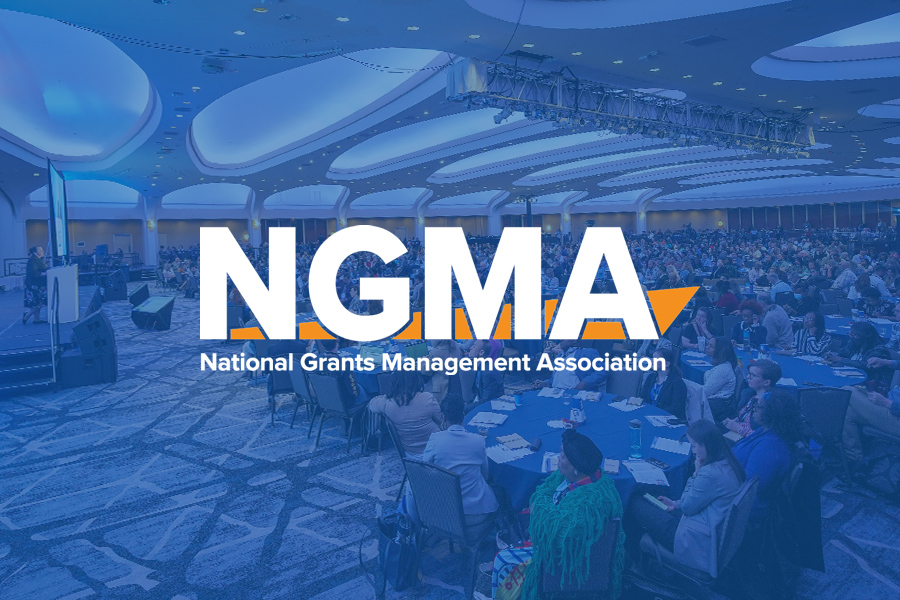I jumped headfirst into the grants field, unsure of the breadth of responsibilities and expectations. My goal was to find a career that gave me purpose and variety. I wanted to feel good about the work I did, knowing in some way it gave back to my community. Similarly, I knew I needed a career that provided me continual opportunities to learn. I did not know how perfectly a career in grants administration aligned with those goals.
Starting out, I expected I would be able to neatly plan each day and complete my task list by the end of the day. As a college student, I thrived on schedules, organization, and predictability. I expected the business world and grant administration to be similar – structured and relatively predictable. After all, there is a grant lifecycle that is consistent across all projects – pre-award, award, post-award. I expected a singular, comprehensive guidance for all federal agencies and all funding sources.
As any seasoned grants professional will tell you, the grants administration profession is anything but predictable. Over time, I learned the neatly planned “to-do” list gets tossed to respond to unplanned needs and issues. There was no one comprehensive guidance. Many federal agencies had nuances in terms of compliance, monitoring, and administrative rules.
What I did find was variety and many opportunities to grow. Each day, each new grant program and new funding agency provided new problems to solve and new opportunities to expand my grants knowledge base.
Over my approximately 17 years in grants administration, even with the variety of projects and grant programs I’ve worked on, I’ve consistently focused on honing the same set of responsibilities as a grants manager. Some of those responsibilities and things a new grants manager in the profession could expect to do include:
- Administer grants and agreements.
- Negotiate terms and conditions of grants and agreements to include costs, schedules, and oversight/compliance responsibilities.
- Develop and implement grant management policies, procedures, and resources.
- Provide technical assistance to program managers, recipients, and subrecipients.
- Serve as a liaison between grantor agencies, recipients/subrecipients, external partners, and others to help interpret regulations and award documents, and resolve issues that may arise.
- Conduct risk assessments and business reviews.
- Solicit applications or proposals for funding.
- Monitor recipients/subrecipients with all terms and conditions of awards.
- Review and process payment requests, ensuring reasonability, eligibility and allocability of costs.
- Conduct final review of completed awards and process closeouts.
If you’re just starting out in grants administration, buckle up for an unpredictable adventure where you’ll get to learn federal agencies and grant programs, and delve into the Uniform Guidance. Many of your days, you may toss out your neatly planned to-do list to focus on the unexpected issue of the day. For those days full of the unexpected, I encourage you to follow these simple steps:
- Pause. If unexpected situations cause motivation to make quick decisions, take a pause. Take a walk. Grab a coffee. Give yourself an opportunity to think.
- Evaluate. Focus on the outcome. Think about resources available to you to help achieve the desired outcome. No options are bad options. Some may be a stretch but write them all down.
- Collaborate. Share your outcome and your options. Collaborate on the feasibility of the options. Narrow down to the best/most practical options.
- Implement. Make a final decision and commit to your choice. Implement confidently.
- Debrief. Take time to focus on the success of handling the unexpected. Evaluate your resolution of the unexpected – what went well, what could be improved next time?
If I could give one parting thought to a new grants manager, it would be to learn as much of every aspect of grants management, and to continue to seek opportunities (through training, conferences, certifications and mentorships) to further your knowledge base. The grants administration field is vast and provides a lot of variety. Find a grant program you’re passionate about and go be great!
Emily Beckham is a Program Manager at the North Central Texas Council of Governments (NCTCOG) and a Certified Grant Management Specialist (CGMS). In her role at NCTCOG she serves as the Title VI Coordinator and oversees activities related to contracting, procurement, risk and compliance.

